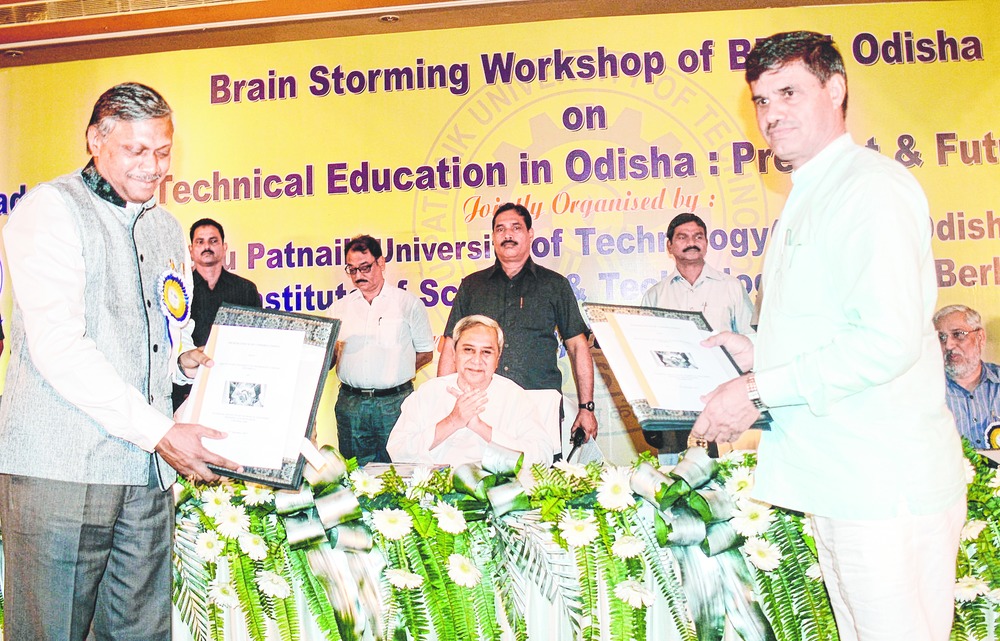
Bhubaneswar, Sept. 21: Chief minister Naveen Patnaik today said the future of technical education should focus on competency-based learning, higher order reasoning, outcome-based education, employable technical skills, work attitude, ethical practices, industry-recognised credentials and other relevant issues.
Naveen was speaking at the inauguration of a brainstorming workshop at the Biju Patnaik University of Technology on "White Paper on Technical Education in Odisha: Present and Future Perspective".
"Along with quality faculty in technical education, the universities should take steps for revision of curriculum and syllabus with thrust on soft-skill development, industry exposure and inter-disciplinary studies," he said.
Stating that special care should be taken for encouraging research and development activities to suit to needs of industry, Naveen said: "The curriculum should also adhere to the non-negotiable academic calendar."
Speaking at the workshop, All-India Council for Technical Education chairman A.D. Sahasrabudhe said the authorities should identify bright students and motivate them to take up MTech and PhD courses.
"In most engineering colleges, MTech classes are being taught by faculty having a BTech degree. Such is the irony of the situation in India. Immediate steps must be taken to overcome the crisis of quality teachers," said Sahasrabudhe.
"There was a time when students remained attentive throughout the one-hour lecture. And since there were a few books and many could not afford them, students spent a lot of time in the libraries taking notes," said Sahasrabudhe, adding that new methods of pedagogy must be devised.
"Students must be told to learn the chapters in advance with the help of Internet before coming to class. They must be given challenging problems to solve forming teams. These problems must be in relevance to the society, and students must come out with answers and solutions," he said.
"The exam pattern must also move on from writing short notes, essays and definitions to application of subjects and problem-solving methods," he said.
The workshop discussed recruiting good faculty, curriculum upgrade, industry interaction, innovative pedagogy, examination system and evaluation, research culture, support for innovation, entrepreneurship and incubation facilities besides soft skills and self-learning development.
Vice-chancellor S.S. Patnaik said the workshop aimed to bring out a document on technical education for the next 10 years.
"The recommendations will be very significant in shaping our future technical education," he said.
During the workshop, an MoU was signed between the BPUT and the National Institute of Technical Teachers' Training and Research, Chandigarh, for developing video lectures and improving quality of technical education through faculty training.











